Find Help
More Items From Ergsy search
-

Is the Pension Wise service reliable for pension advice?
Relevance: 100%
-
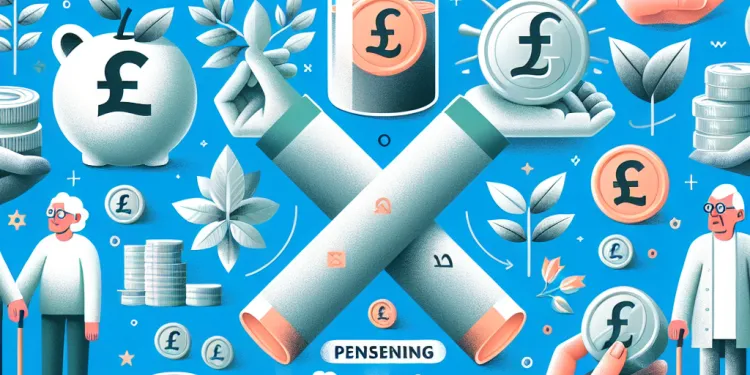
What is the impact on pensioners if a pension system collapses?
Relevance: 100%
-

What is the basic pension in the UK?
Relevance: 96%
-
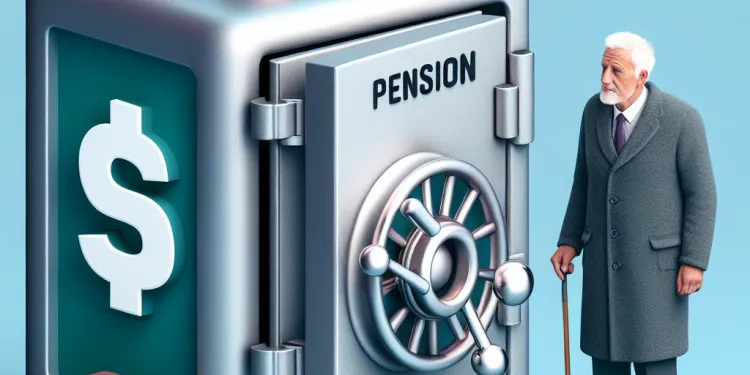
Can pensioners lose all their money if a pension provider fails?
Relevance: 95%
-

Is there a difference between the basic State Pension and the new State Pension?
Relevance: 95%
-

What Happens When Pensions Go Bust! | Pension System Collapse UK
Relevance: 95%
-

Pension rights for Firefighters in the UK
Relevance: 95%
-

Police Pension Explained
Relevance: 95%
-

Can pension scheme members influence how their pension is managed?
Relevance: 94%
-

Can I get pension advice directly from pension fund providers?
Relevance: 92%
-

Unfreezing the Truth The UK's Frozen Pensions
Relevance: 91%
-
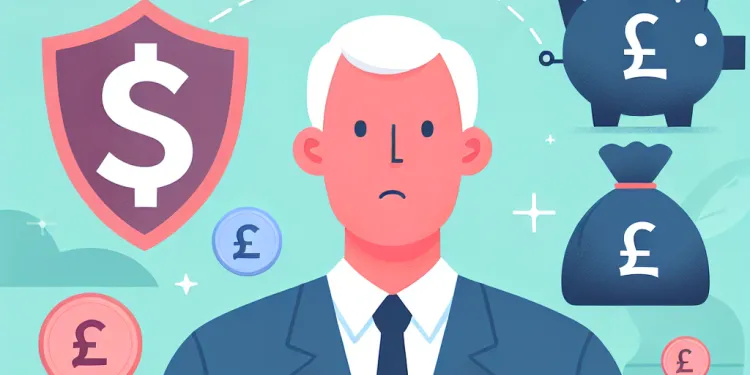
What is the Pension Protection Fund?
Relevance: 91%
-

Are firefighter pension benefits taxable?
Relevance: 91%
-

Will I qualify for the new state pension?
Relevance: 91%
-
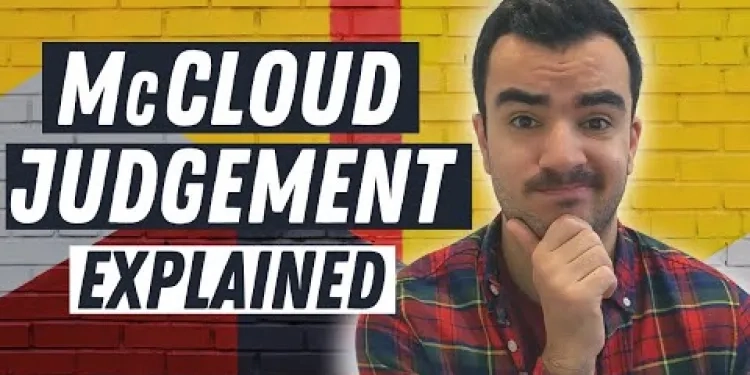
Public Sector Pension Changes | McCloud Judgement | NHS Pensions etc.
Relevance: 90%
-
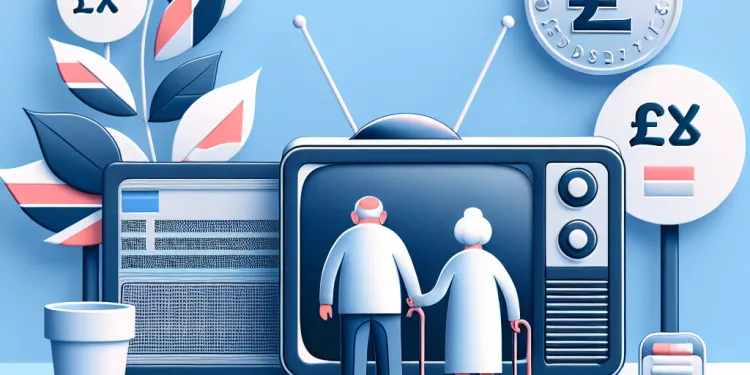
Do pensioners get a free TV license?
Relevance: 90%
-

Why do pension funds go bust?
Relevance: 89%
-
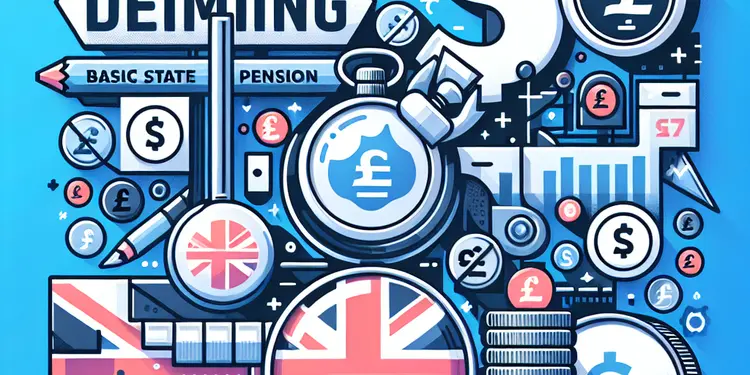
How do I claim the basic State Pension?
Relevance: 88%
-

How is the pension calculated for firefighter schemes?
Relevance: 88%
-

Are firefighter pension benefits adjusted for inflation?
Relevance: 88%
-

Do firefighters have to contribute to their pension schemes?
Relevance: 88%
-

What is the state pension age in the UK in 2026?
Relevance: 88%
-
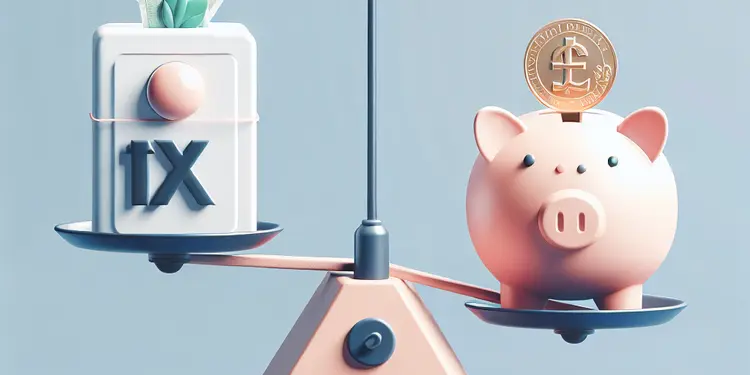
Do I pay tax on the basic State Pension?
Relevance: 88%
-

What is the normal pension age for firefighters in the UK?
Relevance: 88%
-
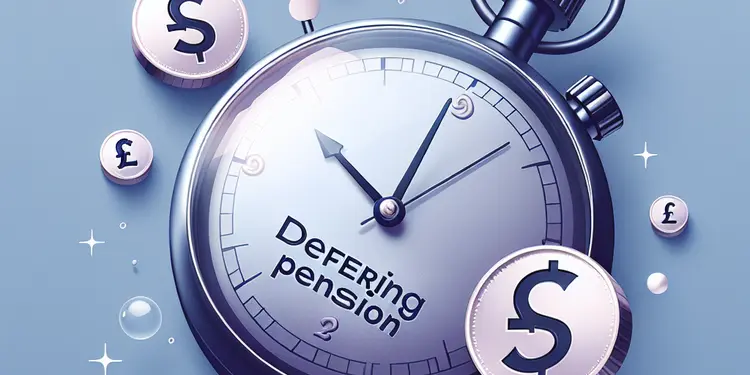
Can I defer my basic State Pension?
Relevance: 88%
-

Are men and women's pension ages equalized?
Relevance: 87%
-
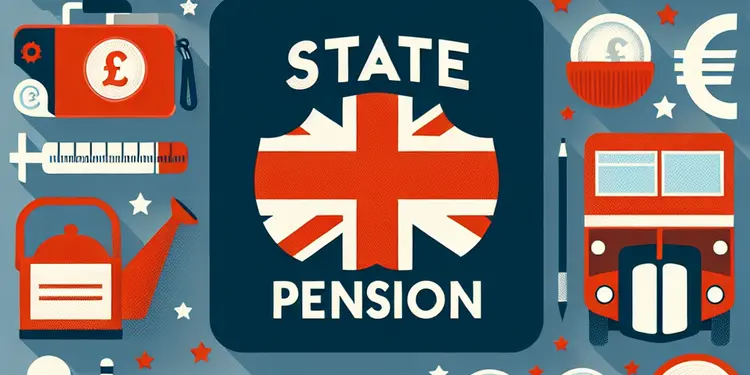
Is the basic State Pension enough to live on?
Relevance: 87%
-

Who is eligible for the basic State Pension?
Relevance: 87%
-

Are government pension advisory services trustworthy?
Relevance: 87%
-
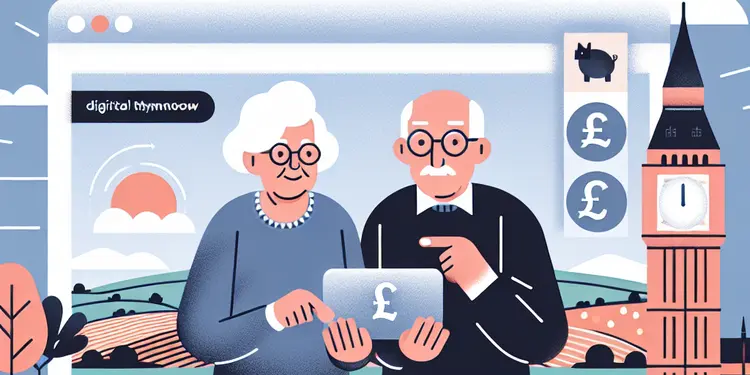
Are there free online resources for pension advice?
Relevance: 87%
-

Can my employer provide pension advice?
Relevance: 87%
-

Will pension contribution allowances be affected in 2026?
Relevance: 86%
-

What is the importance of a pension advisor's accreditation?
Relevance: 86%
-

What is a defined benefit pension scheme?
Relevance: 86%
-

How do online pension calculators help?
Relevance: 85%
-

Will the state pension amount change with the age increase?
Relevance: 85%
-

Can firefighter pension benefits be divided in a divorce?
Relevance: 85%
-
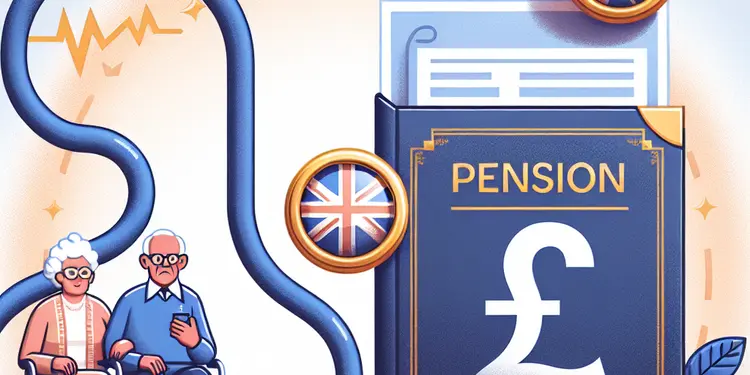
Can my spouse inherit my basic State Pension?
Relevance: 85%
-

Drawdown vs Annuities | Pensions UK | Which Is Better?
Relevance: 85%
-

Is it possible to buy additional pension benefits as a firefighter?
Relevance: 85%
NHS Pensions: All You Need to Know
The NHS Pension Scheme is a key element of the rewards package for employees working in the National Health Service in the United Kingdom. It's crucial for NHS staff to understand how this pension scheme works, its benefits, and the choices available.
Overview of the NHS Pension Scheme
The NHS Pension Scheme provides financial security to NHS employees upon retirement. The scheme is divided into different sections, including the 1995 Section, the 2008 Section, and the 2015 Scheme, each with distinct features and benefits. The 1995 and 2008 Sections are based on the final salary model, whereas the 2015 Scheme is a career average revalued earnings (CARE) scheme.
Eligibility and Enrollment
Eligibility to join the NHS Pension Scheme generally extends to individuals who are directly employed by the NHS or are members of NHS-commissioned services. Most new NHS employees are automatically enrolled in the 2015 Scheme and can opt-out if they wish. Existing members of earlier sections may have specific protections or transition rights, depending on their circumstances.
Contributions
The contribution rates for both employees and employers vary and are determined by pensionable pay and the section of the scheme. Typically, employee contributions range from about 7.1% to 13.5% of their salary, while the employer contributes a significant amount as well, adding substantial value to the pension fund.
Benefits of the Scheme
The NHS Pension Scheme provides a range of benefits including a guaranteed retirement income, options for early retirement, pensions for surviving partners and children, and an ill-health retirement provision. These benefits are designed to provide peace of mind and financial stability to NHS employees and their families.
Understanding Retirement Options
NHS employees have flexibility when it comes to retirement, including the ability to take early or late retirement, with different rules and calculations applying that affect the pension benefits. It's important for members to carefully consider their retirement options and timing to maximize their benefits.
Managing Your Pension
It's important for NHS employees to keep track of their pension benefits and understand how life changes such as promotions, leaves of absence, or changes in working hours might affect their future pension. Engaging with available resources and tools, such as online calculators and benefits statements, is encouraged for effective pension management.
NHS Pensions: All You Need to Know
The NHS Pension Scheme is a special way to help people who work for the NHS in the UK save money for when they stop working. It's important for NHS staff to know how this pension works, what benefits it offers, and the choices they have.
Overview of the NHS Pension Scheme
The NHS Pension Scheme helps NHS workers have money when they retire. There are different parts of this scheme: the 1995 Section, the 2008 Section, and the 2015 Scheme. Each one has different rules. The 1995 and 2008 Sections are based on what you earn when you finish working there. The 2015 Scheme is based on what you earn during your whole career.
Eligibility and Enrollment
You can join the NHS Pension Scheme if you work directly for the NHS or for NHS services. Most new NHS workers join the 2015 Scheme automatically, but they can choose to leave if they want. Some people in the older schemes might have special rights to stay with those plans.
Contributions
Both employees and employers put money into the pension. How much you pay depends on how much you earn and which part of the scheme you're in. Employees usually pay between 7.1% and 13.5% of their salary into the pension. Employers add more money too, which makes your pension grow faster.
Benefits of the Scheme
The NHS Pension Scheme gives lots of benefits. It promises a set amount of money when you retire. You can also stop working early if needed. If you pass away, it helps your partner or children with money. There are also special rules if you retire because of health issues. These benefits help NHS workers and their families feel safe about their future.
Understanding Retirement Options
NHS workers have choices about when to retire. You can retire early or later than usual. The time you choose can change how much pension you get, so it's a good idea to think carefully before deciding.
Managing Your Pension
It's important to know how your pension is doing. Things like getting a promotion, taking time off work, or changing work hours can change your pension. You can use online tools like calculators and benefit statements to keep track of it. These tools can help you manage your pension better.
Frequently Asked Questions
What is the NHS Pension Scheme?
The NHS Pension Scheme is a workplace pension scheme provided by the NHS for its employees. It helps members build up a pension pot through contributions deducted from their salary, to be used during retirement.
How many tiers are there in the NHS Pension Scheme?
There are two main tiers within the NHS Pension Scheme: the 1995/2008 Scheme and the 2015 Scheme. Each has different rules and benefits.
Who is eligible to join the NHS Pension Scheme?
Most NHS employees are eligible to join the scheme, including full-time, part-time, and temporary staff. Eligibility may vary based on specific employment terms and conditions.
What is the employee contribution rate for the NHS Pension Scheme?
Contribution rates for employees vary based on their earnings, ranging from 5% to 14.5% of pensionable pay.
What are the benefits of being in the NHS Pension Scheme?
Benefits include a guaranteed income in retirement, death in service benefits, ill-health retirement provisions, and options for transferring benefits if you move to another qualified scheme.
How is the pension calculated in the NHS Pension Scheme?
For the 1995/2008 Scheme, pensions are typically calculated based on average salary in the final years before retirement and length of service. The 2015 Scheme uses a career average revalued earnings approach.
Can I transfer my NHS Pension to another pension scheme?
Yes, it is possible to transfer your NHS Pension to another scheme. However, it’s important to carefully consider any potential loss of benefits and seek financial advice before proceeding.
What happens if I leave the NHS before retirement?
If you leave the NHS, your pension benefits can be deferred and will remain in the scheme, growing until you reach retirement age. Alternatively, you can transfer them to another pension provider.
When can I start drawing my NHS Pension?
The age at which you can draw your NHS Pension depends on the scheme you are in. Generally, it is linked to the State Pension Age, but there can be variations based on specific scheme rules.
How does early retirement affect my NHS Pension?
Taking early retirement will usually result in receiving a reduced pension, as benefits are paid out over a longer period than initially calculated.
What is 'added years' in the NHS Pension Scheme?
The 'added years' option allows members of the 1995 and 2008 Sections to buy additional pension benefits, increasing the total annual pension upon retirement.
Is my NHS Pension taxed?
Yes, your NHS Pension is subject to income tax, although it is paid before tax is deducted, and any tax you owe will depend on your total income after retirement.
What is the NHS Pension increase each year?
NHS Pensions generally increase in line with inflation, as per the Consumer Prices Index (CPI). The rate of increase is set annually and affects both deferred pensions and those in payment.
Can I nominate beneficiaries for my NHS Pension?
Yes, you can nominate beneficiaries who will receive benefits in the event of your death. It’s important to keep these nominations up to date.
How can I get more information about my NHS Pension?
You can get more information about your NHS Pension by contacting the NHS Business Services Authority or visiting their website, where you can access detailed guides and tools.
What is the NHS Pension Scheme?
The NHS Pension Scheme is a way to save money for when you stop working. It's like a big money jar that helps you when you finish your job. People working in the NHS put a little bit of their paycheck into this jar every month.
When you retire, which means stop working when you are older, you can use this money to help pay for things you need.
If you find it hard to understand or want help:
- Try asking someone you trust, like a family member, for help.
- You can also use pictures or drawings to help explain how saving money works.
The NHS Pension Scheme is a special savings plan for people working in the NHS. It helps them save money for when they retire. Workers put part of their pay into this plan so they can use it when they stop working.
How many levels does the NHS Pension Scheme have?
The NHS Pension Scheme has different levels. These levels are like steps. Each step is a different amount of money you might get. It's important to understand how many steps there are.
If you use pictures or charts, it can help you see the steps better. You can also ask someone to explain it with simple words.
The NHS Pension Scheme has two main parts: the 1995/2008 Scheme and the 2015 Scheme. Each one has its own rules and benefits.
Who can join the NHS Pension Scheme?
Here is who can join:
- People working for the NHS.
- People with a part-time or full-time NHS job.
If you need help to understand, you can:
- Ask a friend or family member to explain.
- Use a computer or phone to read out loud.
Most people who work for the NHS can join the plan. This includes people who work full-time, part-time, and temporary jobs. Checking your work contract can help you know if you can join.
How much do workers pay into the NHS Pension?
How much you pay depends on how much money you make. You pay between 5% and 14.5% of the money that counts for your pension.
What are the good things about being in the NHS Pension Scheme?
Being in the NHS Pension Scheme has lots of good stuff:
- Money when you stop working: You get money every month after you stop working.
- Help if you can't work: If you get sick and can't work, the scheme can help you.
- Money for your family: If you die, your family can get some money from the scheme.
- Safe and sound: The scheme is a safe place to save your money for later.
If you want to know more or need help, ask a grown-up or use special tools like:
- Audio books: Listen to the information.
- A friend or family member: They can help explain things.
Benefits you get:
- Guaranteed money when you retire.
- Money for your family if you pass away while working.
- Help if you have to stop working because you're sick.
- You can move your money to another plan if you change jobs.
Helpful tips:
- Use pictures or symbols to understand better.
- Ask someone to explain tricky words.
- Read one sentence at a time and take breaks.
How do they work out your pension in the NHS Pension Scheme?
If you work for the NHS and retire, you get money every month. This is called a pension.
Your pension is worked out by looking at:
- How long you worked for the NHS. The more years you work, the more money you get.
- How much money you earned. If you earned more, your monthly pension would be bigger.
You can talk to a helper, a friend, or use apps with big texts and pictures to understand more.
For the 1995/2008 Plan, pensions are usually worked out using your average pay in the last few years before you stop working, and how long you have worked. The 2015 Plan adds up your pay over your whole career and then works out your pension.
Can I move my NHS Pension to a different pension plan?
Yes, you can move your NHS Pension to a different plan. But, you should think carefully about what you might lose and talk to a money expert before you decide.
What if I stop working for the NHS before I retire?
If you stop working for the NHS before you get old enough to retire:
- You might get a pension from the NHS when you are older. A pension is money you get when you stop working.
- You can ask someone to help you understand what happens with your pension. A family member or a friend can help.
- You can use drawings or simple words to help understand these ideas.
If you leave the NHS, your pension can stay in the scheme and grow until you are old enough to retire. You can also move your pension to another place if you want.
When can I get my NHS Pension?
The age when you can get your NHS Pension depends on your plan. Usually, it's the same as when you get the State Pension. But, there can be some differences based on your plan's rules.
What happens to my NHS Pension if I retire early?
If you stop working and retire early, you might get less money from your pension. This is because you will be getting your pension for more years than planned.
What does 'added years' mean in the NHS Pension Scheme?
The NHS Pension Scheme is a plan where nurses, doctors, and other workers can save money for when they stop working.
'Added years' is a way to put more money into your pension. This can help you get more money when you retire.
If you want to learn about 'added years,' you can:
- Talk to someone who knows a lot about pensions. They can help explain.
- Use a calculator online to see how much you can add.
The 'added years' choice lets people in the 1995 and 2008 Sections buy extra pension benefits. This means they can get more money each year when they stop working.
To help understand this, you can:
- Use simple language and ask someone to explain it to you.
- Try using a dictionary or online tool to look up words.
- Ask a friend or family member for help.
Do I have to pay tax on my NHS Pension?
Yes, you have to pay tax on your NHS Pension. You get the money before tax is taken out. How much tax you pay depends on all the money you get after you stop working.
What is the NHS Pension increase each year?
The NHS Pension goes up a little bit every year. It goes up to help with the rising cost of living. This means prices go up, so your pension needs to be bigger too.
If you find reading hard, try using a ruler or your finger to help you follow the words. You can also ask someone for help if you need it.
NHS Pensions usually go up with inflation. This means they can get a bit bigger if the cost of living goes up.
They use something called the Consumer Prices Index (CPI) to decide how much the pensions should increase. They check and set the new rate every year.
This change affects both pensions that you are waiting to use and pensions that you are already getting.
If you need help, you can ask a friend, a family member, or use tools like a read-aloud app to help you understand better.
Can I choose who gets my NHS Pension when I die?
Yes, you can choose who gets your things when you die. It's important to keep the list of people up to date.
How can I find out more about my NHS Pension?
If you want to learn more about your NHS Pension, here are some steps you can take:
- Look at the NHS Pension website. It has lots of useful information.
- Contact the NHS Pension help team. They can answer your questions.
- Ask a friend or family member for help if you find it hard to understand.
Remember, it's okay to ask for help if you need it!
You can learn more about your NHS Pension by calling the NHS Business Services Authority or looking at their website. There, you can find easy guides and tools to help you.
Useful Links
Have you found an error, or do you have a link or some information you would like to share? Please let us know using the form below.
-->
This website offers general information and is not a substitute for professional advice.
Always seek guidance from qualified professionals.
If you have any medical concerns or need urgent help, contact a healthcare professional or emergency services immediately.
Some of this content was generated with AI assistance. We’ve done our best to keep it accurate, helpful, and human-friendly.
- Ergsy carfully checks the information in the videos we provide here.
- Videos shown by Youtube after a video has completed, have NOT been reviewed by ERGSY.
- To view, click the arrow in centre of video.
- Most of the videos you find here will have subtitles and/or closed captions available.
- You may need to turn these on, and choose your preferred language.
- Go to the video you'd like to watch.
- If closed captions (CC) are available, settings will be visible on the bottom right of the video player.
- To turn on Captions, click settings .
- To turn off Captions, click settings again.
More Items From Ergsy search
-

Is the Pension Wise service reliable for pension advice?
Relevance: 100%
-

What is the impact on pensioners if a pension system collapses?
Relevance: 100%
-

What is the basic pension in the UK?
Relevance: 96%
-

Can pensioners lose all their money if a pension provider fails?
Relevance: 95%
-

Is there a difference between the basic State Pension and the new State Pension?
Relevance: 95%
-

What Happens When Pensions Go Bust! | Pension System Collapse UK
Relevance: 95%
-

Pension rights for Firefighters in the UK
Relevance: 95%
-

Police Pension Explained
Relevance: 95%
-

Can pension scheme members influence how their pension is managed?
Relevance: 94%
-

Can I get pension advice directly from pension fund providers?
Relevance: 92%
-

Unfreezing the Truth The UK's Frozen Pensions
Relevance: 91%
-

What is the Pension Protection Fund?
Relevance: 91%
-

Are firefighter pension benefits taxable?
Relevance: 91%
-

Will I qualify for the new state pension?
Relevance: 91%
-

Public Sector Pension Changes | McCloud Judgement | NHS Pensions etc.
Relevance: 90%
-

Do pensioners get a free TV license?
Relevance: 90%
-

Why do pension funds go bust?
Relevance: 89%
-

How do I claim the basic State Pension?
Relevance: 88%
-

How is the pension calculated for firefighter schemes?
Relevance: 88%
-

Are firefighter pension benefits adjusted for inflation?
Relevance: 88%
-

Do firefighters have to contribute to their pension schemes?
Relevance: 88%
-

What is the state pension age in the UK in 2026?
Relevance: 88%
-

Do I pay tax on the basic State Pension?
Relevance: 88%
-

What is the normal pension age for firefighters in the UK?
Relevance: 88%
-

Can I defer my basic State Pension?
Relevance: 88%
-

Are men and women's pension ages equalized?
Relevance: 87%
-

Is the basic State Pension enough to live on?
Relevance: 87%
-

Who is eligible for the basic State Pension?
Relevance: 87%
-

Are government pension advisory services trustworthy?
Relevance: 87%
-

Are there free online resources for pension advice?
Relevance: 87%
-

Can my employer provide pension advice?
Relevance: 87%
-

Will pension contribution allowances be affected in 2026?
Relevance: 86%
-

What is the importance of a pension advisor's accreditation?
Relevance: 86%
-

What is a defined benefit pension scheme?
Relevance: 86%
-

How do online pension calculators help?
Relevance: 85%
-

Will the state pension amount change with the age increase?
Relevance: 85%
-

Can firefighter pension benefits be divided in a divorce?
Relevance: 85%
-

Can my spouse inherit my basic State Pension?
Relevance: 85%
-

Drawdown vs Annuities | Pensions UK | Which Is Better?
Relevance: 85%
-

Is it possible to buy additional pension benefits as a firefighter?
Relevance: 85%


